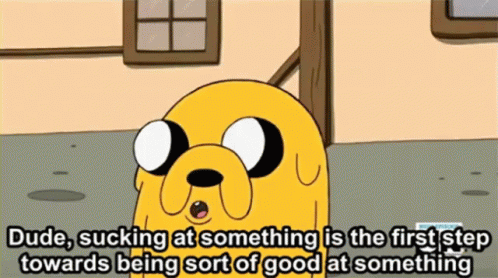- Joined
- May 21, 2013
- Messages
- 5,411
- Reaction score
- 7,831
A problem I've been facing recently is that I take everything very personally. Any time a superior points out a mistake I've made, it really affects me emotionally, even if it's not a big deal. It's not that I tend to ruminate, but that I react badly in the moment. I cry very easily, and although I haven't actually cried in public in a long time, I do have a tendency to tear up, and it's fairly obvious.
I have to give a presentation at a lab meeting next week, and I know that my presentation is going to get ripped to shreds by my PI. Which is a good thing, obviously, because constructive criticism will ultimately benefit me and help me improve. But I know that will l still feel upset and personally insulted as it's happening. I really do not want to cry in front of my entire lab!
Does anyone else have this problem, or have tips for overcoming it? This is obviously not gonna fly during the clinical years, so I want to start working on this now.
I have to give a presentation at a lab meeting next week, and I know that my presentation is going to get ripped to shreds by my PI. Which is a good thing, obviously, because constructive criticism will ultimately benefit me and help me improve. But I know that will l still feel upset and personally insulted as it's happening. I really do not want to cry in front of my entire lab!
Does anyone else have this problem, or have tips for overcoming it? This is obviously not gonna fly during the clinical years, so I want to start working on this now.


